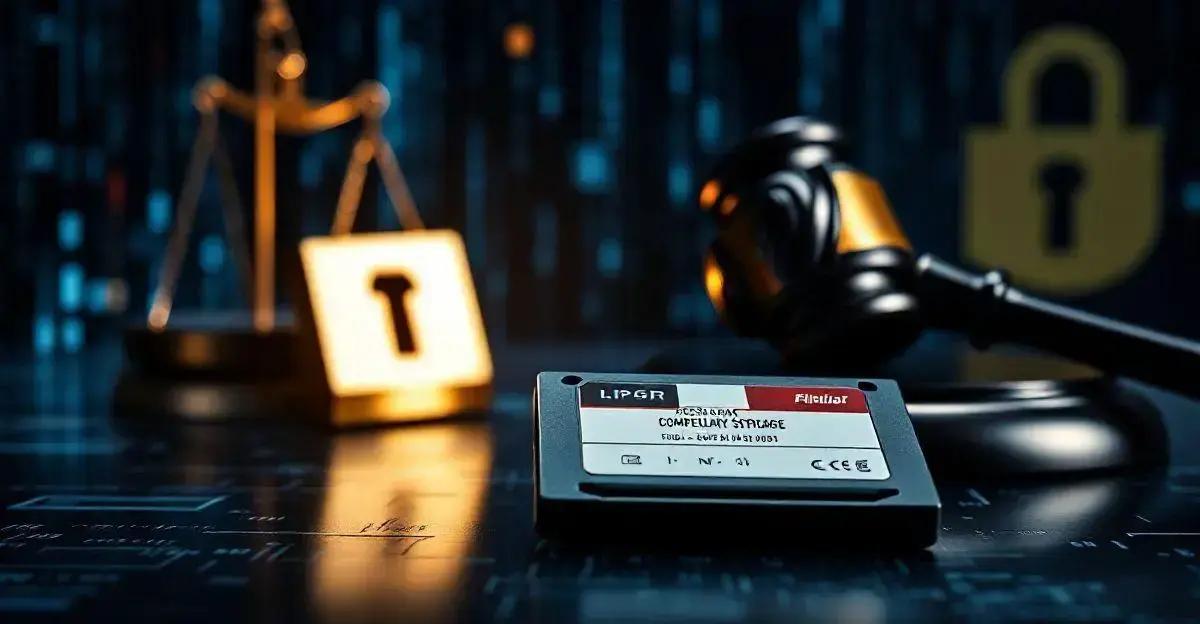Western Digital has suffered a major legal defeat, losing over $310 million in a patent infringement case concerning data security technology for PCMCIA and Compact Flash cards. The court ruled that the company used patented technology without authorization, raising concerns about their adherence to intellectual property laws and potentially leading to increased scrutiny from competitors. This situation highlights the importance of developing proprietary solutions and utilizing emerging technologies like blockchain and AI for enhanced data protection and legal compliance in the future.
Western Digital has recently suffered a significant legal blow, losing over $310 million in a lawsuit concerning patent infringement related to data security technology used in PCMCIA and Compact Flash cards.
Overview of the Lawsuit
The lawsuit against Western Digital was initiated by a competitor claiming that the tech giant infringed on their patented data security technology. This technology is crucial for ensuring the integrity and protection of data stored in various formats, particularly in PCMCIA and Compact Flash cards, which are widely used in portable devices.
As the case unfolded, it became evident that the stakes were high, not just in terms of financial penalties but also regarding Western Digital’s reputation in the tech industry. The court proceedings revealed detailed arguments from both sides, with the plaintiff presenting evidence that Western Digital had used their patented technology without permission.
Outcome of the Case
Ultimately, the jury sided with the plaintiff, leading to the hefty $310 million judgment against Western Digital. This ruling is a stark reminder of the importance of intellectual property rights in the technology sector and the potential consequences of infringement.
Details of the Patent Infringement

The patent infringement case revolved around specific data security technologies that are integral to the functioning of PCMCIA and Compact Flash cards. The plaintiff argued that Western Digital had utilized their patented algorithms and methods without obtaining the necessary licenses.
During the trial, the court examined various technical documents and expert testimonies that outlined how Western Digital’s products incorporated these patented features. The plaintiff provided compelling evidence, including internal communications that suggested Western Digital was aware of the patents and chose to proceed with using the technology regardless.
Key Evidence Presented
Furthermore, the jury was shown comparisons between the patented technology and Western Digital’s products, highlighting the similarities that led to the infringement claim. The plaintiff’s legal team emphasized that this technology was not only innovative but also essential for maintaining data security standards in the industry.
As the details of the infringement were laid bare, it became clear that the case was not just a simple misunderstanding but a significant oversight on Western Digital’s part, raising questions about their compliance with patent laws and their internal processes for technology development.
Implications for Western Digital
The implications of the $310 million lawsuit loss for Western Digital extend far beyond the immediate financial hit.
Firstly, this judgment has the potential to impact the company’s stock prices and investor confidence, as legal troubles often raise red flags for shareholders.
Moreover, the ruling may lead to increased scrutiny of Western Digital’s product lines and practices. The company might be forced to re-evaluate its technology development processes to ensure compliance with existing patents and avoid similar legal issues in the future.
In addition, the loss could open the door for other competitors to pursue their own patent claims against Western Digital, potentially resulting in a wave of litigation that could further strain the company’s resources and focus.
Strategic Implications
On a strategic level, Western Digital may need to accelerate its innovation efforts to regain its competitive edge in the market. This could involve investing more in research and development to create proprietary technologies that do not infringe on existing patents.
Finally, the company’s reputation may take a hit, prompting a need for public relations efforts to reassure customers and partners of their commitment to intellectual property rights and ethical business practices.
Future of Data Security Technology

The future of data security technology is poised for significant evolution, especially in light of recent legal battles like the one faced by Western Digital. As companies navigate the complexities of patent laws and technological innovations, there’s an increasing emphasis on developing proprietary solutions that prioritize both security and compliance.
With the rise of data breaches and cyber threats, the demand for robust data security measures is greater than ever. This scenario creates an opportunity for tech companies to invest in cutting-edge security technologies that not only protect data but also adhere to legal standards.
Emerging technologies such as blockchain, advanced encryption methods, and artificial intelligence are likely to play pivotal roles in shaping the landscape of data security. These innovations can enhance data integrity and provide users with greater control over their information.
Collaboration and Standards
Moreover, as the tech industry continues to evolve, collaboration among companies may become more prevalent. By sharing best practices and developing joint security standards, businesses can foster a safer digital environment while minimizing the risk of patent infringement.
Ultimately, the future of data security technology will hinge on a delicate balance between innovation and legal compliance. Companies that prioritize ethical practices and invest in original technologies will not only protect their interests but also contribute to a more secure digital ecosystem for everyone.
FAQ – Frequently Asked Questions about Western Digital’s Lawsuit and Data Security Technology
What was the main reason for the lawsuit against Western Digital?
The lawsuit was primarily due to allegations of patent infringement related to data security technology used in PCMCIA and Compact Flash cards.
How much did Western Digital lose in the lawsuit?
Western Digital lost over $310 million in the lawsuit.
What are PCMCIA and Compact Flash cards?
PCMCIA and Compact Flash cards are types of portable storage devices commonly used in various electronic devices for data storage.
What are the implications of this lawsuit for Western Digital?
The implications include potential financial repercussions, increased scrutiny of their practices, and the need for enhanced innovation to maintain competitiveness.
How might this lawsuit affect the future of data security technology?
The lawsuit highlights the importance of compliance with patent laws and may drive companies to develop proprietary technologies that enhance data security.
What technologies are expected to shape the future of data security?
Emerging technologies like blockchain, advanced encryption, and artificial intelligence are expected to play significant roles in enhancing data security.



